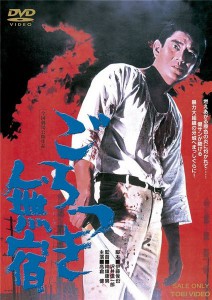
Young coal miner Takeda leaves Kyushu in search of a better job in Tokyo, only to fall into the lucrative yet dangerous life of a yakuza.
Read More »
Tag Archives: Ken Takakura
International Gangs of Kobe / Kobe Kokusai Gang (1975) Noboru Tanaka, Ken Takakura, Bunta Sugawara, Isao Natsuyagi, Action
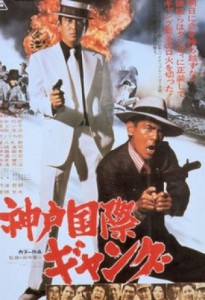
In International Gangs of Kobe the opposite occurs; it’s Sugawara’s presence that brings out Takakura’s ruthless side. Although the two start off as allied gang members, Kobe proves too small a town for the giants of yakuza cinema. The gang splits into rival factions and Takakura and Sugawara settle their differences with violence. Tons of action and a notable cast make the unexceptional International Gangs of Kobe a load of silly yakuza fun.
Read More »
Black Rain (1989) Ridley Scott, Michael Douglas, Andy Garcia, Ken Takakura, Action, Crime, Thriller
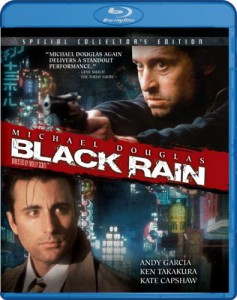
Two New York cops get involved in a gang war between members of the Yakuza, the Japanese Mafia. They arrest one of their killers and are ordered to escort him back to Japan. In Japan, however, he manages to escape. As they try to track him down, they get deeper and deeper into the Japanese Mafia scene and they have to learn that they can only win by playing the game the Japanese way.
Read More »
Yasha / Demon (1985) Yasuo Furuhata, Ken Takakura, Ayumi Ishida, Hisamitsu Nakamura, Drama, Crime
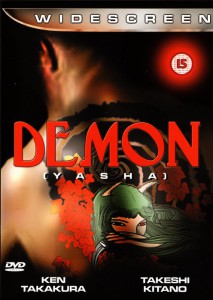
Retired yakuza gangster Shuji (Ken Takakura) moves back from Osaka to a remote coastal village to start a new life as a fisherman with his family, his arrival from the city coinciding with that of the beautiful bar hostess Keiko (Yuko Tanaka, who provided the voice of Lady Eboshi in Princess Mononoke). Keiko’s new bar, as its name Hotaru (‘firefly’) suggests is soon acting as a magnet for all the local fishermen, much to the chagrin of their wives. Not soon after the arrival of Keiko’s roguish lover Yajima (Kitano), also an ex-mobster, the locals are drawn into a host of collective vices including gambling and all-night drinking sessions. After a truly stand-out scene in which Yajima runs rampage through the village on a heroin-induced spree with a carving knife, he is run out of town by Shuji, but not before slashing Shuji’s shirt open during the fracas to reveal the tattoo of a woman’s face upon his back. With Shuji’s gangster past now revealed he finds himself ostracised by the local community and drawn towards the sympathetic character of the bar hostess with whom he shares a common past. When Yajima rears his ugly head one more time in order to borrow money from Keiko to pay off a debt to the yakuza, it is to Shuji that she turns for help, threatening to upset his domestic apple cart and pitch him back towards his old life.
Read More »
Shiawase no kiiroi hankachi / The Yellow Handkerchief (1977) Yôji Yamada, Ken Takakura, Chieko Baishô, Kaori Momoi, Comedy, Drama
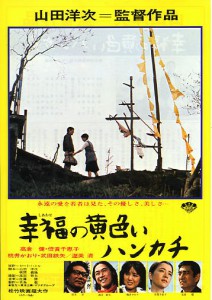
The story starts with Kinya, who has recently upgraded his car. He’s a young adult and he’s single so naturally he uses his ride to ahem, look for companions. He offers a ride to a shy girl by the name of Akemi and she reluctantly accepts. From the get go, sexual tension is apparent, but things get a bit easier as the two become acquainted. They pick up Yusaku, a 30-something coal miner with a reserved personality. The story slowly begins to shift from the comedic hijinks of Kinya and Akemi to Yusaku’s mental drama. He’s hiding something about his past, which he either wants to forget or is trying to remember.
Read More »
Station / Eki (1981) Yasuo Furuhata, Ken Takakura, Chieko Baishô, Ayumi Ishida, Drama
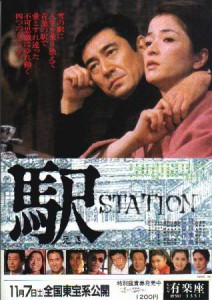
A very beautiful film. This is a Ken Takakura vehicle, and as such follows his formula. Takakura plays to type as the laconic brooder who suffers multiple tragedies with manly stoicism. While the variety of his film varied greatly, his films with director Yasuo Furuhata were always of the highest quality, and this is no exception. Takakura is a cop training to be a sharpshooter for the Olympic games, he divorces his wife and abandons his daughter when he discovers she’s had an affair. Later his coach is gunned down by a fleeing criminal. Years later Takakura returns to his snowy hometown and starts an affair with a middle-aged bar owner. The story is a bit thick, with a number of subplots, yet it is extrordinarily melancholic, as Takakura seems to regret everything he’s done in his life and is made over and over again to relive his mistakes. There is very little “action” as such, and no yakuzas of any kind; but beyond that this is one of the most lushly beautiful and emotional films you can see (if you can see it), with an excellent score by Ryudo Uzaki.
Read More »